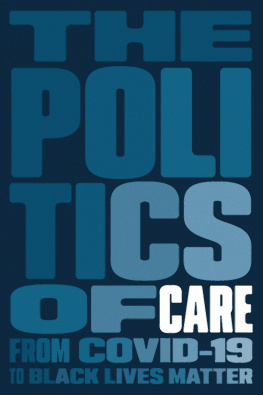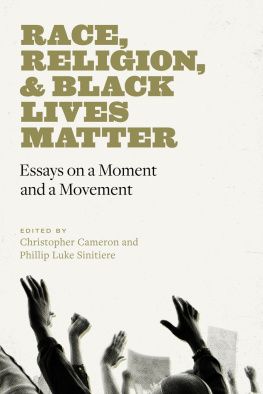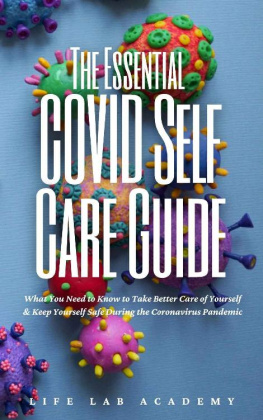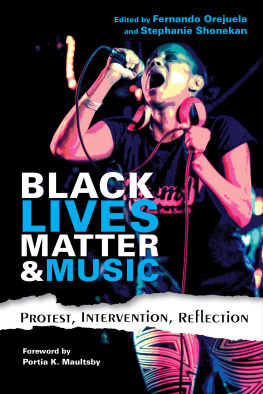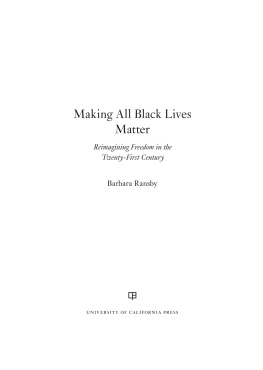Boston Review - The Politics of Care From Covid-19 To Black Lives Matter
Here you can read online Boston Review - The Politics of Care From Covid-19 To Black Lives Matter full text of the book (entire story) in english for free. Download pdf and epub, get meaning, cover and reviews about this ebook. year: 2020, publisher: Verso Books, genre: Politics. Description of the work, (preface) as well as reviews are available. Best literature library LitArk.com created for fans of good reading and offers a wide selection of genres:
Romance novel
Science fiction
Adventure
Detective
Science
History
Home and family
Prose
Art
Politics
Computer
Non-fiction
Religion
Business
Children
Humor
Choose a favorite category and find really read worthwhile books. Enjoy immersion in the world of imagination, feel the emotions of the characters or learn something new for yourself, make an fascinating discovery.
- Book:The Politics of Care From Covid-19 To Black Lives Matter
- Author:
- Publisher:Verso Books
- Genre:
- Year:2020
- Rating:5 / 5
- Favourites:Add to favourites
- Your mark:
- 100
- 1
- 2
- 3
- 4
- 5
The Politics of Care From Covid-19 To Black Lives Matter: summary, description and annotation
We offer to read an annotation, description, summary or preface (depends on what the author of the book "The Politics of Care From Covid-19 To Black Lives Matter" wrote himself). If you haven't found the necessary information about the book — write in the comments, we will try to find it.
The Politics of Care From Covid-19 To Black Lives Matter — read online for free the complete book (whole text) full work
Below is the text of the book, divided by pages. System saving the place of the last page read, allows you to conveniently read the book "The Politics of Care From Covid-19 To Black Lives Matter" online for free, without having to search again every time where you left off. Put a bookmark, and you can go to the page where you finished reading at any time.
Font size:
Interval:
Bookmark:

THE
POLITICS
OF
CARE
THE
POLITICS
OF
CARE
a copublication of
BOSTON REVIEW & VERSO BOOKS
made possible by a generous grant from
THE WILLIAM AND FLORA HEWLETT FOUNDATION
Editors-in-Chief Deborah Chasman & Joshua Cohen
Managing Editor and Arts Editor Adam McGee
Senior Editor Matt Lord
Engagement Editor Rosie Gillies
Manuscript and Production Editor Hannah Liberman
Contributing Editors Junot Daz, Adom Getachew, Walter Johnson,
Amy Kapczynski, Robin D.G. Kelley, Lenore Palladino
Contributing Arts Editor Ed Pavli
Editorial Assistants Meghana Mysore & Katya Schwenk
Marketing and Development Manager Dan Manchon
Finance Manager Anthony DeMusis III
Copublisher Verso Books
Printer Sheridan PA
Board of Advisors Derek Schrier (chairman), Archon Fung, Deborah
Fung, Alexandra Robert Gordon, Richard M. Locke, Jeff Mayersohn,
Jennifer Moses, Scott Nielsen, Robert Pollin, Rob Reich, Hiram
Samel, Kim Malone Scott
Interior Graphic Design Zak Jensen & Alex Camlin
Cover Design Alex Camlin
The Politics of Care is Boston Review Forum 15 (45.3)
To become a member, visit
bostonreview.net/membership/
For questions about donations and major gifts,
contact Dan Manchon, dan@bostonreview.net
For questions about memberships, call 877-406-2443
or email Customer_Service@bostonreview.info.
Boston Review
PO Box 390568
Cambridge, ma 02139-0568
Verso
UK: 6 Meard Street, London W1F 0EG
US: 20 Jay Street, Suite 1010, Brooklyn, ny 11201
versobooks.com
Verso is the imprint of New Left Books
ISSN: 0734-2306
ISBN-13: 978-1-83976-309-0
ISBN-13: 978-1-83976-309-0 (US EBK)
ISBN-13: 978-1-83976-309-0 (UK EBK)
Authors retain copyright of their own work.
2020, Boston Critic, Inc.
CONTENTS
OVER THE PAST six months, the COVID-19 pandemic has upended our individual and social lives. As we write, it has killed at least 160,000 Americans and more than 700,000 people globally. Apocalyptic in the original meaning of the terma disclosure or revelationthe pandemic has exposed the political and economic arrangements that enabled its terrible human devastation.
Working from home, feeling the sense of urgency, and hoping to respond constructively to the crisis, we nearly tripled our normal volume of Boston Review online publishing. Essays came from a mix of longtime contributors and new voicesthinkers who could speak directly to the moment, and who share our commitment to the power of collective reasoning and imagination to create a more just world. We called the series Thinking in a Pandemic.
And then we watchedwith horror and indignationthe killing of George Floyd. So our efforts to provide a forum for people to speak to the pandemicincluding the racial disparities in its impactconverged with our longstanding commitment to providing a forum for hard thinking about racial justice.
This volume includes some of the best of those separate but related efforts: clear-eyed looks at the pandemic and racism, along with ideas about the way toward a new kind of politicswhat Gregg Gonsalves and Amy Kapczynski call a politics of carethat centers peoples basic needs and connections to fellow citizens, the global community, and the natural world. The contributions draw on their authors varied backgroundspublic health to philosophy, history to economics, literature to activismbut together they point to a future in which, as Simon Waxman writes, no one is disposable.
August 2020
THE
NEW
POLITICS
OF CARE
Gregg Gonsalves &
Amy Kapczynski
IN MARCH 2020 THE UNITED STATES surpassed China to become the country with the greatest number of confirmed COVID-19 cases in the world, and it has remained at the top of infection and mortality charts since. The scale of our failure is truly staggering. As of early August, more than 160,000 Americans have died from COVID-19 almost 25 percent of all deaths around the world in a country that accounts for just over 4 percent of the worlds population. All the while, our faade of federal leadership has been ruinous. After more than six months of global emergency, President Donald Trump cannot think beyond the twenty-four-hour news cycle, now focused solely on his reelection campaign. Meanwhile, several states have rushed to reopen, even while new cases surge and a viable containment plan remains notional, at bestwhen the disease is not outright rejected as a hoax.
The first stage of the U.S. COVID-19 response was denial, issued straight from the top. The second was a wave of social solidarity as we realized that, in the absence of leadership, we had to act: communities, neighbors, and state and local governments began to try to flatten the curve. The third stage, the one we remain in, has been a riptide of skepticisma powerful current running against the wave of social distancing, leading to an acceleration of the pandemic. An outbreak of armchair epidemiology and economics has aided and abetted the problem, suggesting we must choose between saving the vulnerable and saving the economy. For Republicans this reframed choice obscures the fact that the Trump administrations catastrophic response systematically undermined our ability to shift to a more focused approach. At a minimum, that would have required massive testing and contact tracing, widespread distribution of personal protective equipment to the general public, structural supports to enable people to follow public health recommendations, and a scale up of our health care capacity.
That has not happened. Instead, we have seen millions of Americans sacrifice for one another in a remarkable display of care for their friends, families, and neighbors. It is telling, however, that our typical indicators of the economy register these actions as a kind of collective suicide. The economy that were offered in the usual takemeasuring little and commanding muchis a death machine, as climate activists have been saying for years. Models of the economy do not incorporate the idea of staying home as productive of anythingnot least avoidance of the negative externality of mass death. Staying home, taking care of our kids, safeguarding our health care workers, organizing volunteer drives for gloves and masksnone of this counts as part of the economy, nor in any obvious way can this fetishized conception of the economy value the lives of those most at risk.
Disastrous leadership from the Trump administration and other Republican politicians has certainly made this pandemic much worse than it needed to be. But there were early missteps from Democrats too, including Bill DeBlasio, Andrew Cuomo, and later Gavin Newsom, who reopened California before he should have. Yet many of the features that have made COVID-19 so disruptive have much deeper roots in our political and social order. This is nowhere more apparent than in the structural features of our health care and public health sectorsfeatures that make an effective response so difficult. Decades of neoliberal policies, supported by Democrats and Republicans alike, have installed a profit-driven health care system, a hyper-carceral approach to migration and social dislocation, an austerity-ravaged state that looks ever more like the neoliberal caricature, and a crisis of social reproduction. We continue to pay the price for those policies today.
As we continue fighting to bring this pandemic under control, it is imperative that we reject this neoliberal dispensation forcefully and head on. We must also embrace a broad-based vision of a new politics of care and work to change the crumbling structure of our broken society. We must build, in short, a new infrastructure of care to protect us alla new order that, instead of perpetuating the virulent inequality and exploitation of late twentieth-century capitalism, makes health justice and care a core feature of our democracy.
Font size:
Interval:
Bookmark:
Similar books «The Politics of Care From Covid-19 To Black Lives Matter»
Look at similar books to The Politics of Care From Covid-19 To Black Lives Matter. We have selected literature similar in name and meaning in the hope of providing readers with more options to find new, interesting, not yet read works.
Discussion, reviews of the book The Politics of Care From Covid-19 To Black Lives Matter and just readers' own opinions. Leave your comments, write what you think about the work, its meaning or the main characters. Specify what exactly you liked and what you didn't like, and why you think so.

